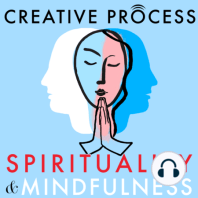20 min listen

(Highlights) AZBY BROWN
ratings:
Length:
20 minutes
Released:
Mar 12, 2022
Format:
Podcast episode
Description
"Everything I would ask Temple and shrine carpenter Master Tsunekazu Nishioka, he brought it back to issues of the environment. Trees as living beings that we should love and cherish and respect. That we apologize to the tree when we cut it because we are ending that phase of its life, but we promise to use it in a way that will continue that life for another thousand years as part of a temple, for instance. He was constantly pointing out–Trees at the bottom of the hill, it's wetter there so that wood is not good for much. The trees at the top are not fighting for light, so they get stouter. And the trees in the middle, they are competing for light, so they get taller. And the branches are higher up, so they have fewer knots. Everything was about where the wind from, where the water came from, every question returned to that, and that’s something I realized as I got to know other craftspeople in Japan, whether to lacquer or basketry or textiles. They all had this fundamentally sound environmental understanding that had been handed down for centuries.In Edo Japan, basically life was pretty good, and they recycled everything. Everything was reused, upcycled. Waste was considered taboo. A person who was wasting was considered an ugly person. So there is a lot that we could talk about: design, the layout, scale. Buildings were rarely taller than two stories. Very good use of environmental features, microclimates, use of wind for cooling, passive solar heating. Good use of planting, gardens, etc. But regarding cities of the future, I think the main thing is it needs to be a place where people feel like they belong and want to take responsibility.I'm from New Orleans, and I am very interested in the fact that cities and the places we live in teach us. They shape us, as much as we shape them. And New Orleans was a wonderful place to grow up in because you wouldn't have said it was sustainable, but the vernacular traditional architecture was naturally cooler in summers because of the way it was built with high ceilings with deep eaves from the roof, with verandas shaded with lots of breezes and lots of gardens, plus it is full of older buildings. And things become gentle over time.”Azby Brown is a leading authority on Japanese architecture, design, and environmentalism and the author of several groundbreaking books, including Just Enough, Small Spaces, The Japanese Dream House, The Very Small Home, and The Genius of Japanese Carpentry. He is lead researcher for Safecast, a global citizen-science organization that pioneered crowdsourced environmental monitoring. Azby Brown has lived in Japan since 1985.· azbybrown.com · www.safecast.org · www.oneplanetpodcast.org · www.creativeprocess.info
Released:
Mar 12, 2022
Format:
Podcast episode
Titles in the series (100)
PETER SINGER: Interviewed by Mia Funk · Associate Podcast Producer Ellen Hu by Spirituality & Mindfulness · The Creative Process: Spiritual Leaders, Mindfulness Experts, Great Thinkers, Authors, Elders, Artists Talk Faith & Religion